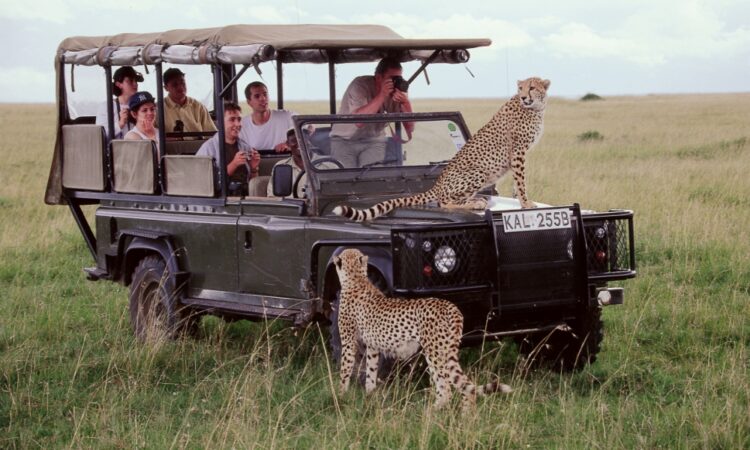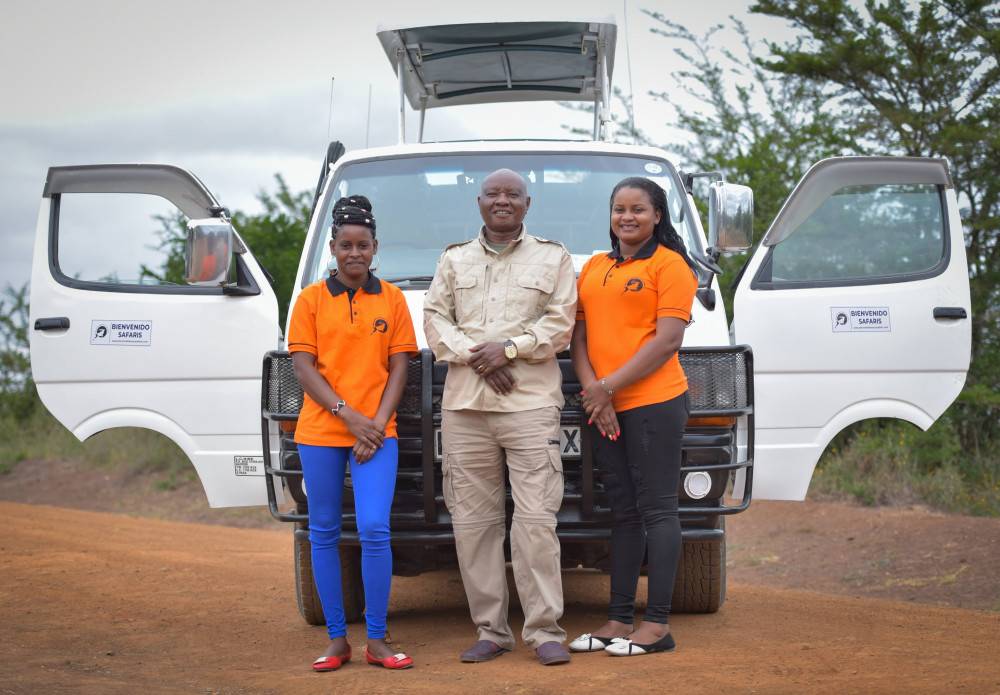Free Suggestions For Selecting Kenya Mombasa Train
What Are The Security And Safety Factors I Should Be Aware Of When Visiting Mombasa In Kenya?To enjoy a stress-free trip to Mombasa Kenya it is crucial to take into consideration the safety and security. Keep in mind these key aspects:
1. General Security
Stay up-to-date: Make sure to stay up-to-date on the latest local news, as well as any travel warnings from your country.
Register with Your embassy: If necessary, register with your embassy in Kenya in order to receive assistance in the event of an emergency.
2. Health Precautions
Vaccines: Make sure you're current on your regular vaccinations. You may also want to consider other vaccines, such as Hepatitis, Hepatitis, B Typhoid, Yellow Fever.
Mombasa, a malaria-endemic region is one to avoid. Use insect repellent and antimalarial medicines, sleep in mosquito nets, and dress in long sleeved clothes during the evening.
Food Security and Water: Drink bottled, boiled or cooked water. Avoid the use of ice. Foods sold on the streets should be avoided.
3. Personal Security
Avoid walking at night alone: stick to well-lit areas and densely populated areas. Avoid walking at night on the beach and in areas that are secluded.
Protect your valuables. Make use of hotel safety deposit boxes for valuables, such as money and passports. Do not display valuable items such as electronic devices and jewelry.
Choose Reliable Transport: Use registered taxis, ride hailing services or transport arranged by your hotel. Beware of taxis that are not marked.
4. Local Laws and Customs
Be respectful of the local culture. Dress modestly especially when visiting religious places. Be familiar with local customs and practices.
The Kenyan Drug laws are strict, and they carry harsh sanctions. Avoid illegal drug use.
Photographers should always request permission before taking pictures of military personnel or government structures, especially when in rural areas.
5. Beach Safety and Water Safety
Safety in swimming means being aware of local guidance on conditions and currents. Be sure to use designated swimming areas.
Be aware of marine wildlife including jellyfish and sea urchins. If you walk along the beach, be sure to wear appropriate footwear.
6. Crime Prevention
Petty Criminals. Pickpocketing or bag snatching is possible, especially in areas that are populated with lots of people. Make sure your possessions are in a safe place and be vigilant.
Scams: Be cautious of strangers offering overly extravagant assistance or offers which appear too promising to be true. Utilize licensed tour guides.
Keep emergency contact numbers on hand: Fire (999) (999), Police (999) and Ambulance (9999). Always keep the contact details of the consulate or embassy in your pocket.
7. Natural Hazards
Weather: The climate in Mombasa is tropical and can result in floods or heavy rains, especially in the rainy months (April-June) and October-November. Be alert to weather forecasts.
Sun Protection: Wear hats and use sunscreen to protect yourself from sunburn as well as heat exhaustion.
8. Travel Insurance
Comprehensive Coverage: Make sure you have travel insurance that covers medical emergencies, theft, loss or disruption to travel. Verify the coverage of your policy for activities like water sports.
With these safety precautions, you can relax and relax and enjoy your Mombasa vacation. Check out the top rated island snorkeling in mombasa for more tips including luxurious african safari, mombasa travel agency, african safari tours kenya, kenya tours and travel, kenya safari holiday, travel tour companies, safari trips in kenya, trip tour companies, kenya safari holiday, trip tour companies and more.

What Are The Cultural Sensitivity Concerns I Need To Be Aware Of While On Vacation In Mombasa Kenya?
Being sensitive to culture when visiting Mombasa in Kenya is important for ensuring that you have an enjoyable experience and appreciate the people living there. Here are some essential considerations.
1. Dress according to local dress codes
Mombasa is the home of a significant Muslim community. It is acceptable to dress modestly in public areas, religious sites, or the local neighborhood. This means that you need to be sure to cover your shoulders, chest knees, legs, and shoulders.
Beachwear: Swimwear is acceptable on the beach, however it is recommended to wear a cover-up when leaving the beach area or visiting nearby restaurants and shops.
2. Religious Sensitivity
Going to Mosques. To visit a place for worship, you have to first get permission. It is also recommended to dress modestly. Women are advised to cover their heads. Everyone should remove shoes prior to entering.
Be aware of the times for prayer. Particularly if there's a mosque close by Be mindful and be respectful.
3. Photography Etiquette
Permission: Before you take photos of anyone, make sure you get their permission. This is particularly important in rural areas or settings that have traditional values. Some people might be uncomfortable and may think that it's intrusive.
Restricted areas: Do not take photos in sensitive areas including government buildings, military installations, or cultural sites, where photography is prohibited.
4. Social Interactions
greetings: greeting people courteously is crucial. Swahili greetings consist of "Jambo". While handshakes are common among men and women, for Muslim women it's acceptable to wait for the hand to be extended before they to greet them verbally.
Your Space - Be respectful of your privacy and not touch anyone, particularly if you are in a conservative setting.
5. Cultural Taboos and Cultural Norms
Public Displays of Affection Limit publicly displayed affection displays because they are typically not appreciated.
Left Hand Usage Traditionally, the left hand was considered unclean. Use your left hand while eating, greeting people or exchanging money or goods.
Feet: Showing your feet or pointing anyone with your feet can be considered to be disrespectful.
6. Language and Communication
Basic Swahili Learn a few phrases from Swahili can go a long way in creating respect and building relationships with locals. The most commonly used phrases are "Asante" (Thank for your time) as well as "Habari" (How are you? ).
Politeness is crucial. Be patient and polite when you communicate. Kenyans respect and value respectful interactions.
7. Respect for Local Customs
Traditional practices: Be respectful of the customs and rituals of the past. Follow your host's lead if you are invited to attend an event in the local area.
Bargaining: In markets and local stores, bargaining is common. Make sure to do it with respect and good humor. It's more of a tradition than a confrontation.
8. Alcohol and Smoking
Alcohol is available in most regions, but it should not be consumed openly. Avoid public drunkenness.
Smoking generally isn't allowed in public spaces. You can find designated smoking areas.
9. Environmental Respect
Beware of littering and dispose of trash properly. Respect wildlife, natural sites and all other animals.
Conservation: Support conservation efforts and respect local wildlife and their habitats. Avoid purchasing products made with endangered species.
10. Assisting Local Communities
Local Businesses: Help local businesses, artisans and markets in order to positively impact the local economy.
Responsible Tourism: Make sure you select eco-friendly tourism that benefits the local community.
Take a look at these tips for cultural sensitivity to enhance your experience in Mombasa and gain a better understanding and appreciation of the local culture. Read the top mombasa watamu snorkeling for more examples including kenya tours, travel & tours company, safari trips in kenya, africa safaris and tours, cheap kenya safari packages, mombasa safari packages, travel & tours company, safari company kenya, kenya tours and travel, mombasa safari and more.

What Safari And Tour Planning Must I Know Prior To An Excursion To Mombasa?
In order to ensure that your vacation in Mombasa will be memorable and enjoyable, it is important to carefully plan a safari. Here are some key points to remember:
1. The Most Reliable Safari and Tour Operators
Choose a tour operator that has a good track of success. Look for tour operators who have been recognized as accredited by the Kenya Association of Tour Operators.
Explore the various package options provided by tour operators. Packages can range from low-cost to high-end and can differ in terms of duration accommodation, duration, and activities.
Guides - Make sure the operator has skilled and knowledgeable guides who must be certified.
2. The most sought-after Safari Destinations Starting from Mombasa
Tsavo National Park one of the biggest game reserves in Kenya, split into Tsavo East and Tsavo West. It's known for its diverse wildlife, including elephants, rhinos, and lions.
Amboseli National Park is famous for its elephant herds, as well as the spectacular panoramas of Mount Kilimanjaro.
Shimba Hills National Reserve - Near Mombasa. It has beautiful landscapes and rare species including the Sable antelope.
Maasai Mara. Although further from Mombasa The Great Migration is celebrated in this area and provides an unforgettable experience with wildlife.
3. Types of Safaris and Tours
Game Drives. Traditional safaris typically involve 4x4 game drives that offer up-close encounters with wildlife.
Walking Safaris - Guided tours allow visitors to discover more about the smaller flora, fauna and the plants.
Balloon Safaris are available in certain parks like the Maasai Mara providing the bird's-eye view of the wildlife.
Beach and bush combos: Combine time at the beach and safari for a truly memorable experience.
Include cultural tours, which include visiting local villages, historic sites, and Mombasa Old Town.
4. Timing and Duration
Best time to visit The dry season (June-October) is the ideal time to see wildlife, because animals tend to congregate close to water sources. The Great Migration in the Maasai Mara typically occurs between July through October.
Safaris vary in length, from day trips to extended adventures. Think about your schedule and how long in the wilderness you'd like to spend.
5. What to include in your
Clothing Light comfortable, breathable clothing that is neutral shades. Also, pack the long sleeves as well as pants to provide evening protection against mosquitoes.
Footwear: For walking safaris footwear that is comfortable for walking or running is essential.
Accessories Sunscreen, sunglasses, and insect repellents are the important items.
Gear: Binoculars aswell as a good digital camera equipped with batteries and memory cards are essential for viewing wildlife.
Medicine: Take any medication you require, including anti-malarials and a basic kit of initial aid.
6. Health and Safety
The vaccinations. You must have the recommended vaccines.
The best way to prevent malaria is to Use insect repellents, dress in long-sleeved clothing at night and consider an antimalarial treatment.
Food safety and water Consume only bottled, water that is purified. Food establishments that have a good reputation.
7. Costs and Payments
Make sure you budget your expenses carefully. Safaris can be expensive. Consider all-inclusive vacation packages that include accommodation, meals, and even activities.
Payment Methods: Most operators accept credit cards as well as bank transfer. Check the payment method and the deposit required.
8. Environmental and Ethical Considerations
Eco-friendly operators: Select operators who adhere to environmentally sustainable practices in tourism.
Wildlife Protection: Respect animals by keeping them in a secure space and not inflicting harm on them. Beware of buying products that contain endangered species.
9. Travel Insurance
Protection: Ensure your travel insurance plan will cover emergency medical situations as well as safari activities, and travel disruptions.
10. Confirmation and Booking
Advance booking: Safaris are popular and are often booked up fast especially during peak season. Make reservations early.
Confirmation Confirm the details of your itinerary, including pickup times and contact information with your travel agent.
Think about these aspects when planning an enjoyable and organized safari tour or safari from Mombasa. This will enhance your holiday in Kenya. See the most popular Diani Beach taxi for more recommendations including kenya tour operator, trips to kenya safari, african safari excursions, african safari excursions, africa tours, africa tours and safaris, africa in kenya, safari company kenya, african safari tours kenya, kenya safari tours and more.
